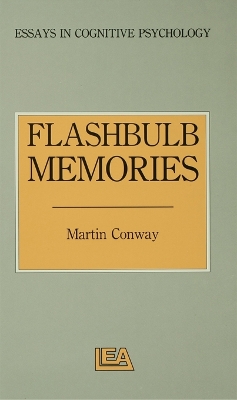This book provides a state-of-the-art review and critical evaluation of research into 'flashbulb' memories. The opening chapters explore the 'encoding' view of flashbulb memory formation and critically appraise a number of lines of research that have opposed this view. It is concluded that this research does not provide convincing evidence for the rejection of the encoding view.
Subsequent chapters review and appraise more recent work which has generally found in favour of the flashbulb concept. But this research too, does not provide unequivocal support for the encoding view of flashbulb memory formation. Evidence from clinical studies of flashbulb memories, particularly in post-traumatic stress disorder and related emotional disturbances, is then considered. The clinical studies provide the most striking evidence of flashbulb memories and strongly suggest that these arise in response to intense affective experiences. Neurobiological models of memory formation are briefly reviewed and one view suggesting that there may be multiple routes to memory formation is explored in detail. From this research it seems possible that there could be a specific route for the formation of detailed and durable memories associated with emotional experiences. In the final chapter a cognitive account of flashbulb memories is outlined. This account is centred on recent plan-based theories of emotion and proposes that flashbulb memories arise in responses to disruptions of personal and cultural plans. This chapter also considers the wider functions of flashbulb memories and their potential role in the formation of generational identity.
- ISBN13 9781134834051
- Publish Date 20 June 2013 (first published 14 December 1994)
- Publish Status Active
- Publish Country GB
- Publisher Taylor & Francis Ltd
- Imprint Psychology Press Ltd
- Format eBook (EPUB)
- Pages 140
- Language English
